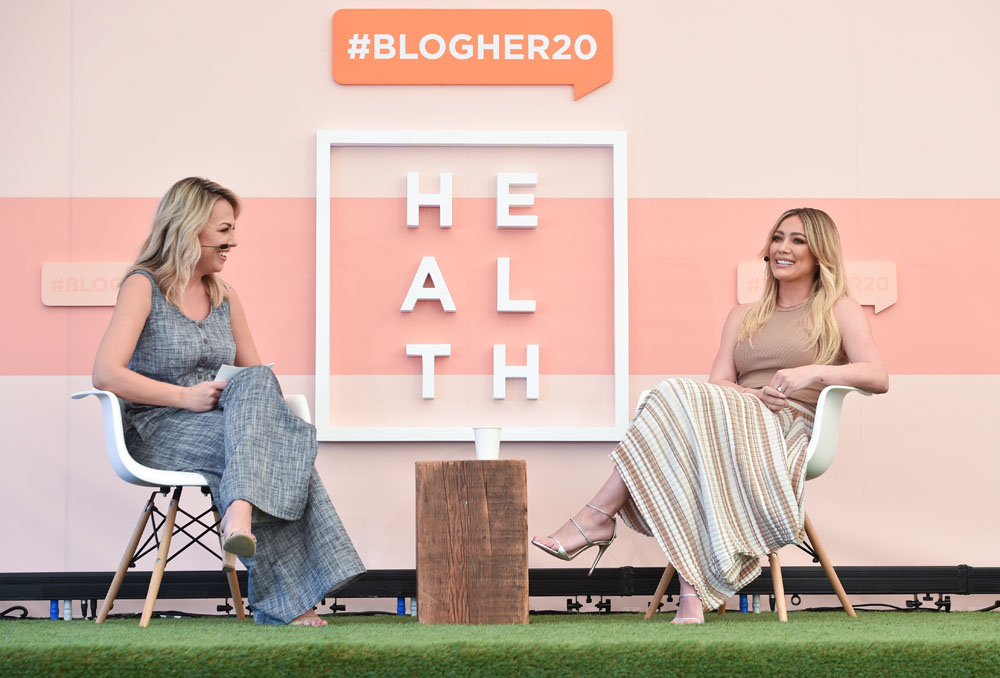Kelly McCreary Urges Women Not To Ignore Fibroids After Revealing Painful Experience
The actress – who plays Dr. Maggie Pierce on ABC’s ‘Grey’s Anatomy’ – spoke about an issue that affects millions of women, including her, at the #BlogHer20 Health summit.
Kelly McCreary, 38, has opened up about her painful battle with fibroids, two years after having surgery to have them removed. The actress – who plays Dr. Maggie Pierce on ABC’s hit show Grey’s Anatomy – shared her private experience of having the non-cancerous uterine growths at the #BlogHer20 Health summit in Los Angeles on Feb. 1. The condition affects millions of Americans but is little discussed and that’s something the actress wants to change. “The fundamental belief that I absorbed was that periods are painful and uncomfortable and that’s normal,” Kelly said about fibroids that can leave sufferers with painful, heavy periods. She told HollywoodLife’s Editor-in-Chief Bonnie Fuller during the Hollywood On Health panel, “So, I was willing to endure, frankly, a lot of discomfort.”
Kelly first found out that she had fibroids around 2014 or 2015, she told HL in a separate EXCLUSIVE interview. After suffering painful periods when she hit puberty, they normalized in her 20s, but caused her increasing discomfort in her 30s. “[My] doctor in New York diagnosed them,” she said about the revelation that came during a routine annual wellness check. “She said, ‘These are not a big deal. They’re very small. They’re in a place that’s easy to remove. We don’t have to do an invasive surgery…’” Although her doctor gave her the name of a surgeon and urged her to “get it taken care of,” Kelly is admits that she “didn’t take her seriously.”
When she moved to Los Angeles, the actress spoke to her new doctor about the fibroids but was told, “Surgery’s a big deal. You don’t want to have any surgery, even if it’s a minor surgery, unless you absolutely have to.” The doctor added, “Instead, go on an IUD. The hormones and the IUD will treat the symptoms of your fibroids and maybe it’ll prevent them from growing.”
Unfortunately for Kelly that’s not what happened. “I wound up taking her advice and the IUD was a huge fiasco,” she said. “I hated it. It was incredibly painful… My fibroids were located in the exact same place where the IUD was placed… That’s the only no-no about IUDs, but that is where my IUD was. The pain was just unbearable.”
Ultimately, it was Kelly’s husband, Pete Chatmon, who urged her to find a permanent solution to her pain. During the #BlogHer20 panel, the actress said he told her, “You yelp out… You’re doubled over. You shouldn’t be in that kind of pain.” That’s when she found a doctor who agreed and encouraged her to have surgery. The doctor, Kelly said, “literally lifted her fists and said, ‘Painful periods are not normal.’” It was only then that, when speaking to the women around her, she realized that fibroids are very common. “Women are experiencing all kinds of painful symptoms, uncomfortable symptoms – acne-related symptoms, fertility-related symptoms and this same doctor informed me that almost no research had been done on the cause and the prevention…” she said during the panel.
In fact, according to the Office on Women’s Health, not only can enlarged fibroids cause frequent urination, rectal pressure, painful sex and make a woman look pregnant, they can also cause complications during pregnancy and, in rare cases, infertility. Fibroids are also three times more likely in African Americans than they are in white women, according to a 2003 study published in the American Journal of Obstetrics and Gynecology.
Fortunately for Kelly, ever since she had her fibroids surgically removed two years ago, her pain has gone away. She does acknowledge, however, that going under the knife isn’t for everyone. “I’m not…necessarily just advocating surgery. I’m advocating treatment that actually is meant to address giving your body and your mind relief; that is not a course of Ibuprofen every month…” she said. “For me, that meant surgery.”
Overall, Kelly believes that persistence is key in finding a solution that works for you. “I think a lot of doctors are quick to end the appointment and you have to be persistent,” she said. Or, as she said on the panel, “If you’re walking around and your wrist hurts, your doctor wouldn’t just be like, ‘Yes, sometimes your wrist hurts.’ You don’t have to deal with that. So, address it, take it seriously and make your doctor take it seriously with you.”
